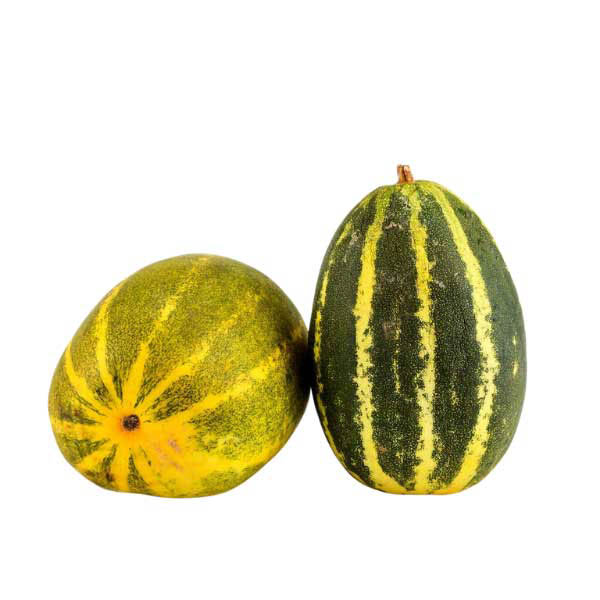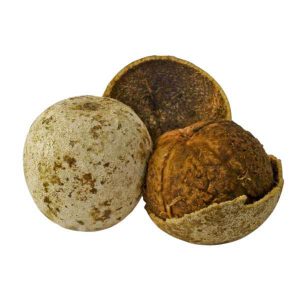Description
Cultivar
Local
Major growing area
Unknown
![]() ORIGINS
ORIGINS
First cultivated in India, Kekiri has a been a part of people’s diets for over 3,000 years
![]() TASTE
TASTE
The pulp is very refreshing coupled with sweet taste and pleasant aroma.
![]() AYURVEDA & MEDICINAL USES
AYURVEDA & MEDICINAL USES
Cooking Melon, used topically, gives a cooling effect that reduces swelling, irritation and inflammation. A cup of kekiri gives over 10% of your daily vitamin K needs and is essential for improving calcium absorption essential for optimal bone health. Cooking Melon has also been found to block the JAK-SAT and MAPK signalling pathways that are utilised by cancer cells to survive and multiply.
![]() NOTABLE FACTS
NOTABLE FACTS
Kekiri in Sinhalese is widely grown in Sri Lanka and is used as a cooked vegetable rather than raw consumption, the pulp of the fruit is extremely refreshing, sweet to taste and possess a pleasant aroma.
![]() TRY-ME RECIPES
TRY-ME RECIPES
Cut kakiri as pieces. Heat oil and add mustard seeds after frying it add ginger garlic and onion fry it to golden brown color. Next add other all ingredients and mix well. Then cover it and cook about 45 minutes under low fire. (Stir between cook)
Place to cook all except coconut milk and powder of mung beans, when boil the mixture add coconut milk and powder of mung bean to the mixture and stir well. After few minutes take out from the cooker and serve.
NUTRIENTS & VALUES PER 100g EDIBLE PORTION
| Energy |
16 kcal |
| Sugars | 1.67 g |
| Protein |
0.65 g |
| Fat | 0.11 g |
| Dietary Fiber | 0.5 g |
| Carbohydrates |
3.63 g |
| Thiamine (B1) | 0.027 mg |
| Riboflavin (B2) | 0.033 mg |
| Niacin (B3) | 0.098 mg |
| Pantothenic acid (B5) | 0.259 mg |
| Vitamin B6 | 0.04 mg |
| Folate (B9) | 7 ?g |
| Calcium |
16 mg |
| Iron | 0.28 mg |
| Magnesium | 13 mg |
| Manganese | 0.079 mg |
| Phosphorus | 24 mg |
| Potassium | 147 mg |
| Sodium | 2 mg |
| Vitamin C |
2.8 mg |
| Vitamin K | 16.4 ?g |
| Zinc | 0.2 mg |
| Water | 95.23 |
| Fluoride | 1.3 ?g |


